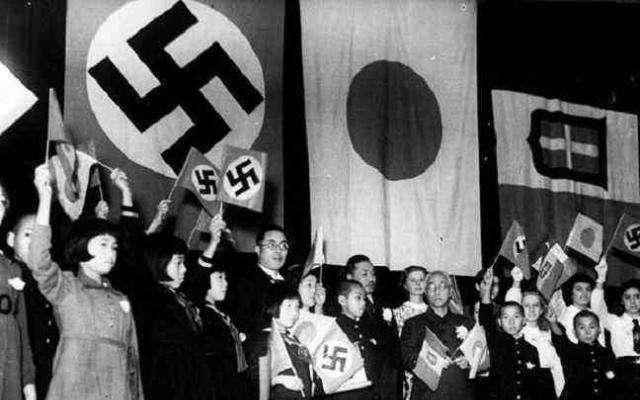On January 9, 1946, the Allied High Command instructed the Allied High Command in Tokyo to set up an International Military Tribunal for the Far East in Tokyo to try and punish the chief Japanese fascist war criminals.

The Chinese judges attending the International Military Tribunal for the Far East are Mei Ruao and procurator Xiang Zhejun, and the legal experts and historians who serve as assistant legal experts and historians are Qiu Shaoheng, Fang Fushu, Yang Shoulin, and Liu Zijian. Mei Ruao is a member of the Legislative Yuan of the Nationalist Government and chairman of the Foreign Affairs Committee, and Xiang Zhejun is the chief prosecutor of the Shanghai SAR Court.
The trials in court are complex. In addition to the common law "procedure" for the trial, it is also stipulated that each war criminal tried must have an American lawyer in addition to a self-employed Japanese lawyer and defender. These American lawyers "seek an excuse" for some war criminals who have not endangered US interests.
The Nationalist Government did not make adequate preparations beforehand, believing that as long as the judges and procurators opened their "golden mouths and fell into a large sum," they would be able to severely punish the war criminals, so they did not prepare enough personal and physical evidence. This made the deputies feel sad and anxious.
In order to quickly get out of the predicament, the Chinese representatives immediately went to the headquarters of the Allied Forces to check the files of the Japanese Cabinet and the Ministry of War and several other departments. Japan's archival materials for more than a decade, including documents, combat orders, telegrams, and so on, are difficult to count. Delegates worked around the clock to extract, translate, sort out the original materials, and then draw up their speeches based on them. Some crimes are not recorded in the Japanese archives and can only be confirmed through field investigations.
For example, in order to collect materials on the crimes of the Nanjing Massacre, the Chinese representative returned to China to investigate, found the survivors of the Nanjing Massacre, and brought this person to Tokyo to testify in court. After a period of intense work by the deputies, the Chinese side has a large amount of powerful evidence of guilt, which was unexpected by those war criminals who invaded China.
During the interrogation of Itagaki, 15 defence lawyers and witnesses appeared on his behalf. When it comes to Itagaki's involvement in the September 18 incident, Shimamoto, the commander of the Japanese wing that attacked China, testified: "He was drinking at a friend's house that night, drunk and smoked, and when he returned home, he got a report of the September 18 incident.
The Chinese prosecutor immediately interrupted him and asked, "Since Shimamoto claims to have been drunk that night, what can a confused drunkard prove?" How can you appear in court as a witness? As a result, Shimamoto was bombed out of the court. This dismissal confused Itagaki's defense team.
Chinese prosecutors must first expend efforts to defeat Japanese lawyers and witnesses, but also deal with the defenses of American lawyers.
Kenji Toihara committed a heinous crime in the invasion of China, and when he appeared in court, his defense lawyer actually said that Toihara was a kind person. To this end, the Chinese procurator sternly refuted it and showed the newspaper that the Fengtian secret service used to ask for merit and rewards from the Japanese government. One of the pages contains the words "When people in South China hear the names of the soil and the plains and the banyuan, they talk about the change of tiger color."
Chinese prosecutors say this is a portrayal of the fierceness of the two brutal Chinese people in Tufeiyuan and Banyuan. However, the American lawyer actually defended it, saying that it was talking about a tiger and had nothing to do with the defendant in this case.
The Chinese procurator calmly explained: "'Talking about the change of tiger color' means that The two men, TuFeiyuan and Itagaki, are as fierce as tigers, and when people hear their names, they are like mentioning tigers, and their faces have changed in fear." The American lawyer was speechless, and the audience laughed.
From the opening of the trial to the final pronouncement of the verdict, the Chinese judge spent eight days and read out more than 1,200 pages of the verdict. War criminals such as Tojo, Matsui, Doihara, Itagaki, and Hirota were eventually sent to the gallows.